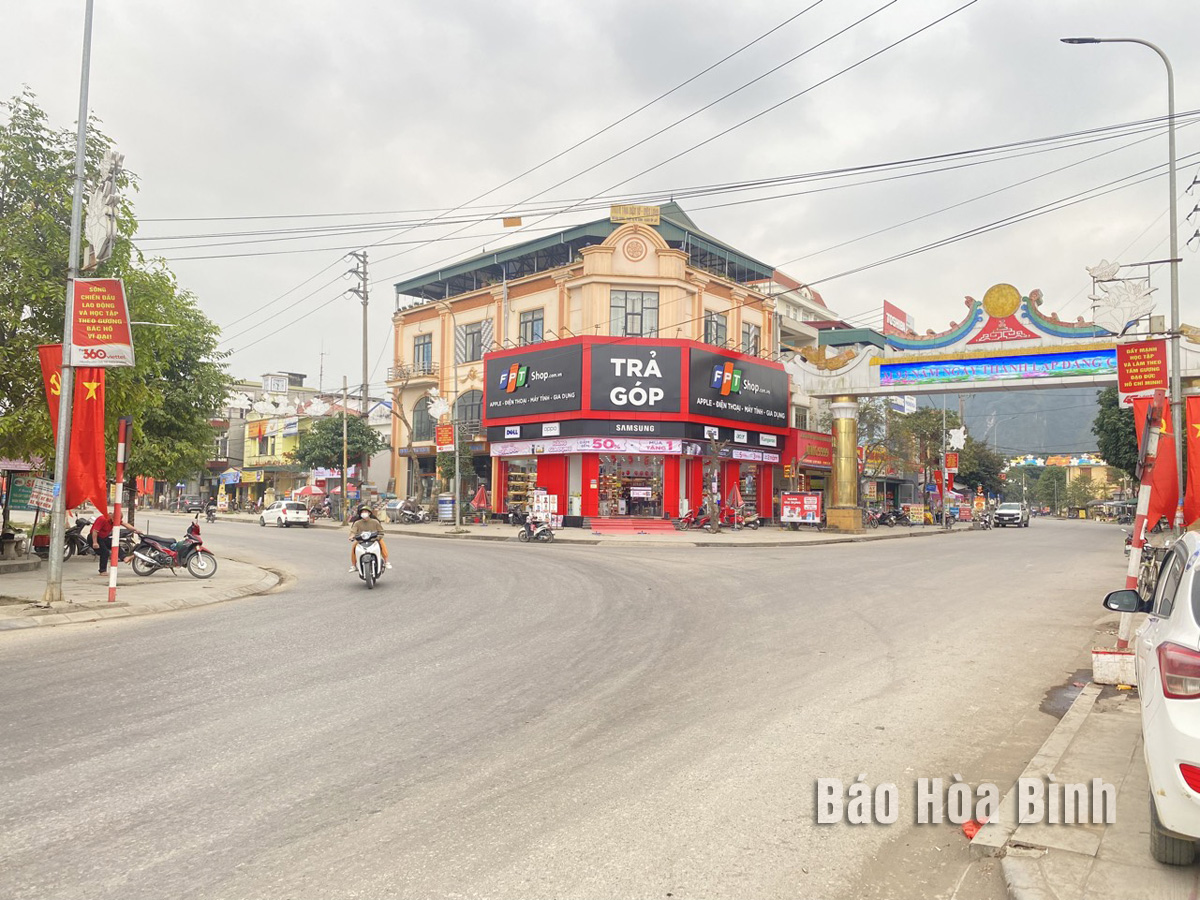
Developing a harmonious and modern-oriented infrastructure stands as one of the three breakthrough stages aimed at fostering socio-economic development, ensuring national defence and security, and contributing to transforming Lac Thuy into a relatively developed district with sustainable and inclusive growth.
Over the recent past, Lac Thuy district has focused on improving urban and rural planning and development. This strategy aims to promote urbanisation while simultaneously creating new, modern rural areas that preserve cultural heritage and leverage local strengths.
The urban planning of Chi Ne town, Lac Thuy district, has been adjusted and expanded with a scale of 1/2000 until 2030, with a vision extending to 2035.
Lac Thuy has achieved substantial progress in planning initiatives. With a total budget of over 17 billion VND (716,000 USD), 21 planning schemes have been completed, including the district's construction plan to 2040, adjustments to the general planning of Chi Ne and Ba Hang Doi towns with a scale of 1/2000 until 2030, with a vision extending to 2035, and master plans for several communes of Phu Nghia, Thong Nhat, Yen Bong, Khoan Du, Dong Tam, Hung Thi, Phu Thanh, and An Binh until 2025, with a vision to 2030, at a scale of 1/10,000.
The comprehensive planning approach provides a clear direction for socio-economic development at both the provincial and district levels. It also streamlines land management and construction order at the commune and district levels, following a comprehensive and effective approach.
The planning process adheres to clear guidelines. The district People's Committee oversees the planning of town adjustments, submitting proposals to the Department of Construction for evaluation and final approval by the provincial People's Committee. For detailed construction plans and commune master plans, the district Economic and Infrastructure Division leads the appraisal and advisory process, seeking input from the Department of Construction before submitting them to the district People's Committee for approval.
Public transparency is maintained through the announcement of planning information by the district People's Committee, communes, and towns. Additionally, boundary demarcation based on the approved plans is ongoing, with regular reviews and adjustments to ensure continued effectiveness. Land management and use strictly adhere to the Planning Law and Land Law, and the development of urban infrastructure and underground spaces follows the approved schemes.
The Standing Board of the Hoa Binh provincial Party Committee has agreed in principle on a proposal by the Standing Board of the Party Committee of Hoa Binh city to gather feedback on the city’s 1:2000 zoning plan, which forms part of its broader urban development strategy.
Hoa Binh province has made notable progress in public administration reform and digital government development, with the satisfaction index among citizens and businesses reaching over 84%, according to recent government evaluations.
Thanks to great efforts by local authorities in recent times, the governance and public administration performance of Mai Chau district has been significantly improved.
In the afternoon of June 6, the Party Committee, the People's Council, the People's Committee and the Fatherland Front of Lac Son district solemnly held a meeting to celebrate the 139th anniversary of the district's founding (1886–2025) and the 79th anniversary of the establishment of the district's Party Committee (1946–2025). There was the attendance of Mr. Bui Van Thang, the Vice Chairman of the Provincial People's Council; Mr. Quach Tat Liem, the Vice Chairman of the Provincial People's Committee; Ms. Dang Bich Ngoc, the Deputy Head of the National Assembly Delegation of the province; as well as the former leaders of the province and district through various periods, who are the natives of the district.
Implementing the Politburo’s Resolution No. 57-NQ/TW on breakthroughs in science – technology, innovation, and digital transformation is a golden opportunity for the northern mountainous province of Hoa Binh to renew growth model, improve competitive edge and shorten digital gap.
Resolution 57-NQ/TW, issued by the Politburo on December 22, 2024, identifies sci-tech, innovation, and digital transformation as strategic breakthroughs to build a developed and prosperous nation. In Hoa Binh province, this spirit is not just a slogan, it’s being put into action through concrete initiatives that form a "new development triangle”: digital citizenship, digital economy, and digital administration.



